News and features
Read the latest news and features about our world-leading research, discoveries, fundraising and philanthropy. If you want to keep updated on our news, you can follow us on social media or sign up for our Search newsletter.
If you’re a journalist and want to find out more, you can contact our media relations team.
.jpg?sfvrsn=b8be1e0b_2)
ICR welcomes recommendation of talazoparib for advanced breast cancer
The Institute of Cancer Research, London, strongly welcomes the news that talazoparib (trade name Talzenna) has been recommended by NICE for the treatment of advanced breast cancer.
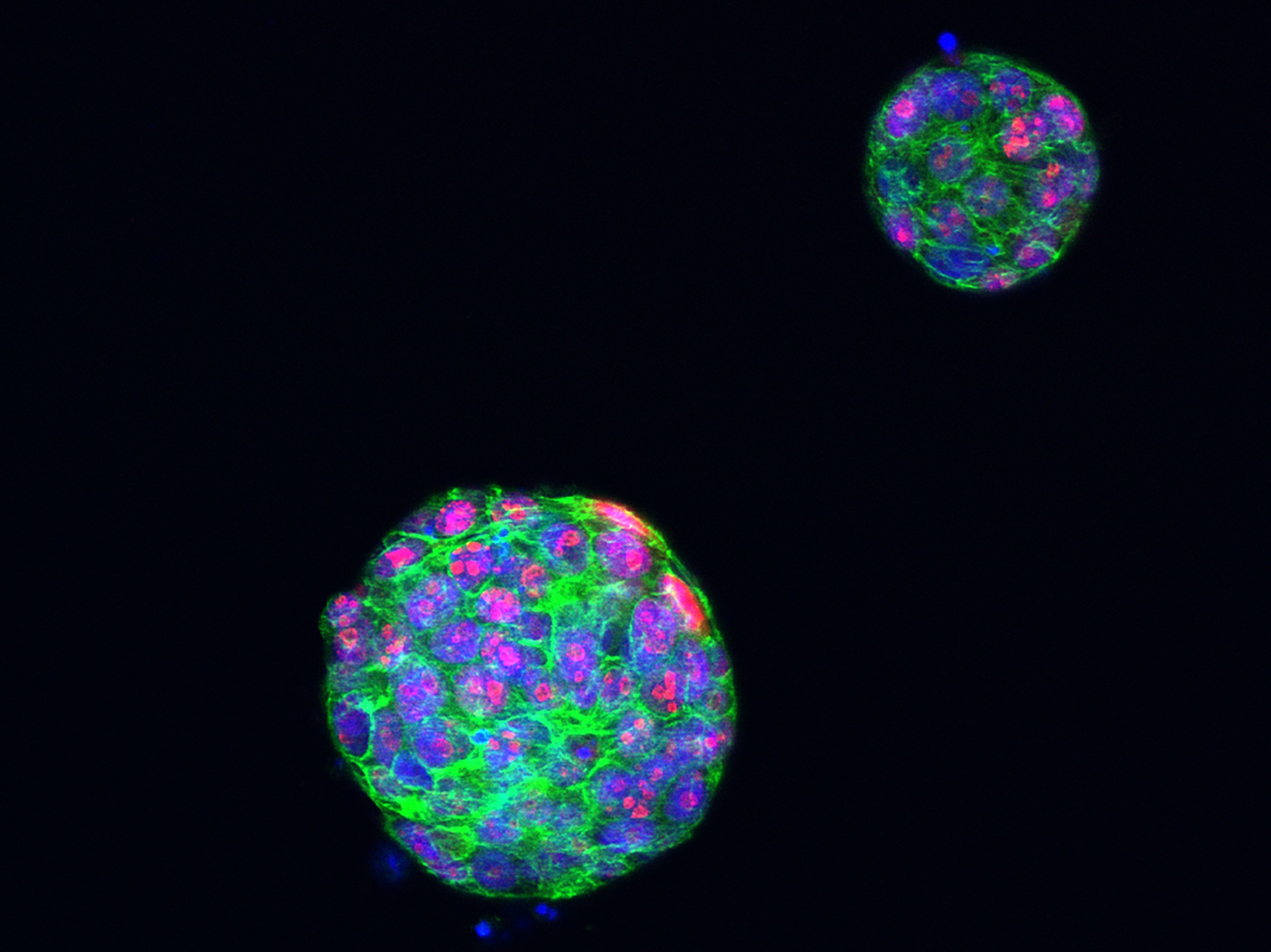
New understanding of devastating type of breast cancer spread could lead to better treatments
A new study has increased the understanding of an increasingly common complication of advanced breast cancer.
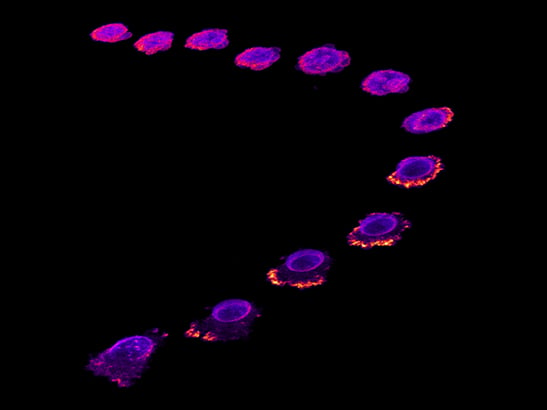
ICR welcomes FDA approval of first-in-class breast cancer drug
The ICR strongly welcomes the news that a new targeted drug, capivasertib, has been approved by the US FDA for treating the most common type of advanced breast cancer. The drug was discovered by pharmaceutical company AstraZeneca following a programme of drug discovery research at the ICR in collaboration with Astex Pharmaceuticals.
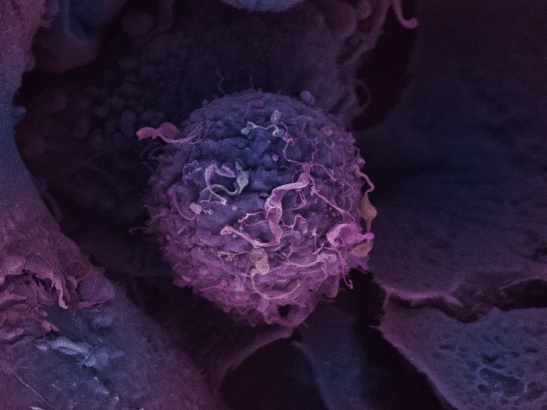
Existing cancer drugs have potential to benefit thousands more patients
Existing targeted cancer drugs could help even more patients, including some with the most common type of breast cancer, scientists have discovered.
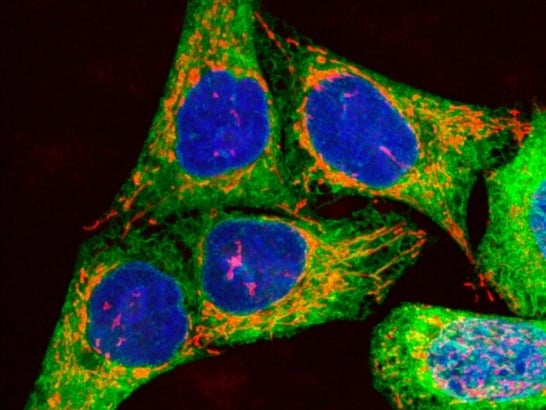
Untapping the full potential of immunotherapies for more people with cancer
Immunotherapy works by sparking the body’s own immune system into action against tumours. It has become a first-choice treatment for some types of cancer, and now there are exciting opportunities to unlock its benefits for more patients through research. Jane Shepley explores the story behind immunotherapy and how we can untap its potential.
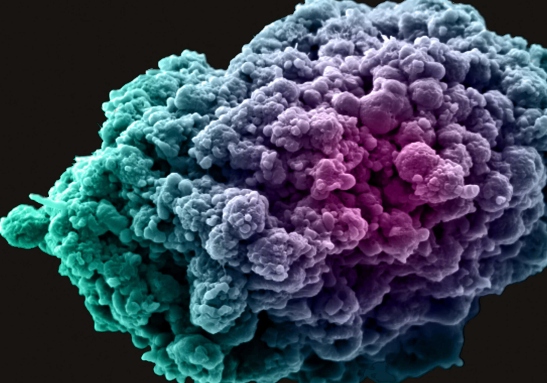
Scientists discover a new way to help prevent breast cancer ‘time bomb’
Scientists have discovered why breast cancer cells that have spread to the lungs may ‘wake up’ following years of sleep - forming incurable secondary tumours.

Scientists behind breast cancer gene discovery honoured with new plaques
The team of scientists who made a ground-breaking gene discovery which transformed the field of cancer research have been celebrated with the unveiling of two commemorative plaques in London today. The plaques pay homage to the 41 scientists who made the landmark discovery of the BRCA2 cancer gene at the ICR in 1995.
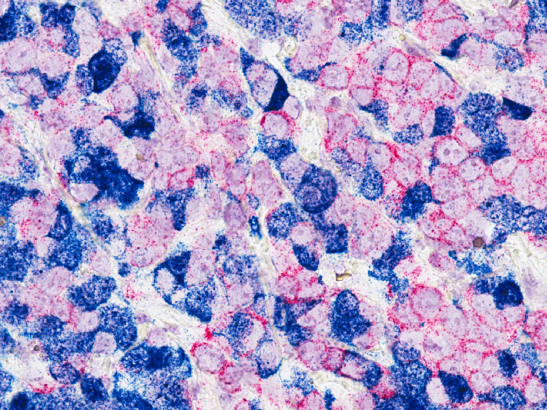
Targeting cancer-supporting cells boosts immunotherapy in previously insensitive tumours
Removing a single protein from cells that surround tumours can improve the sensitivity of certain cancers to immunotherapy, researchers have found.

Blood tests may prevent relapse in breast cancer patients
An innovative trial to detect relapse in breast cancer patients with circulating tumour DNA (ctDNA) has opened at our partner hospital, The Royal Marsden NHS Foundation Trust. The TRAK-ER trial, led by researchers at The Royal Marsden and The Institute of Cancer Research, London, will establish a circulating tumour DNA (ctDNA) surveillance programme for over 1,000 patiets with ER positive breast cancer who are currently receiving hormone therapy to reduce their risk of cancer returning.
-(3)-4088-x-3076.jpg?sfvrsn=81e087bc_2)
ICR urges continued negotiation after NICE rejection of olaparib for early breast cancer
The Institute of Cancer Research, London, is urging NHS-England, NICE and pharmaceutical company AstraZeneca to continue discussions after the disappointing decision not to recommend targeted drug olaparib for women with early-stage, high-risk, inherited breast cancer.

MHRA approves olaparib for high-risk, early-stage breast cancer
The Institute of Cancer Research, London, celebrates the news that the precision medicine olaparib has been approved by the UK regulator, the Medicines and Healthcare products Regulatory Agency (MHRA), for patients with high-risk, early-stage breast cancer and inherited faults in their BRCA1 or BRCA2 genes.
-547x410.jpg?sfvrsn=5e98f2c_2)
Olaparib for high-risk, early-stage breast cancer approved in Europe
The Institute of Cancer Research, London, strongly welcomes the news that the precision medicine olaparib has been approved in Europe for people with high-risk, early-stage breast cancer who have inherited faults in their BRCA1 or BRCA2 genes.
